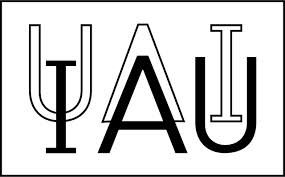Expectations and Visions for the Working Group
The Working Group (WG) on Astronomy for Equity and Inclusion was formed in 2012 as one of the working groups in Commission C1 and since 2019 is an IAU Executive Committee working group.
The WG’s objective is to address the systemic structure, functions, processes and attitudes that result in the exclusion or restricted participation of under-represented groups in the field of astronomy. Key to achieving this goal is research into and the development of strategies, tools and resources that will enable the equal participation in astronomy of people of different ethnic, cultural, religious background, gender, and disability identities.
The WG realizes its mission through an interdisciplinary approach to develop and support astronomy research techniques, software, management, outreach, teaching and learning methods.
Mission
The WG supports the United Nations human rights conventions that “assures all humans with the right to work and education, and that everyone is entitled to these rights, without discrimination”. Outlining and prioritizing diversity this Working Group seeks to build new strategies, tools, and resources that will facilitate access to astronomical resources and careers for people who belong to under- and non-represented groups in the astronomical sciences, whether ethnic, cultural, racial, language and religious groups, people with disabilities, members of the LGBTIQ+ community, age range, socio-economic status, and including individuals who occupy the intersections of these identities.
Actions: Assess, Diagnose, Design and Implement
To assess and identify the key topics that need to be addressed first, this working group adopts a multidisciplinary approach and a policy of including members from under- and non-represented groups in identifying the best contextualized strategies to accomplish these goals.
The WG will work to assure equal opportunities to under-represented and not represented communities in the field of astronomy.
It will invite members of the community with expertise in astronomy, education, disability, cultural heritage, people from different racial groups, ethnicities, religious groups, members of the LGBTIQ+ community, different genders, language groups, ages, socio-economic status, and other marginalized groups, including individuals who occupy the intersections of these identities. These members of the community will propose and oversee the generation of new resources and tools for inclusion.
On equity and equality, the WG will actively assess what is being done in the field and will identify the individuals and organizations that are working on these issues. We will carry out a full study of the situation in the astronomical communities around the world in order to involve the talent and perspectives of their people, point out the problems, solutions, and strategies that have been applied, identify the need for new ones and support sustainability.
The WG will disseminate its findings, activities, strategies etc, in peer-reviewed, professional journals, Astro EDU (a database of education activities), and other repositories as appropriate.
Some examples of actions are:
1. Organize the WG into subgroups according to the particular expertise of each member. Each subgroup will have its own coordination board composed of members of the working group, interdisciplinary representation, and members of the under-represented and not represented communities.
2. Identify the existing tools, resources, and activities in Astronomy to create a database that will show aspects being currently addressed in the field and contextualized methods of addressing those aspects.
3. Assess, identify and address the gap between what is being addressed and the aspects that remain to be addressed.
4. Create a website that will contain the database of resources and all the information about the WG (members, activities, results, news, etc.).
5.To support the IAU’s Office of Astronomy for Development’s project on a Global Dictionary of Sign Language. The Dictionary will be available at the WG website.
Address the unequal access to information caused by the information architecture and discursive approaches of journals, data bases and higher education pedagogy methodologies.
Working on the proposed lines of action is not only related to a moral duty, but by limiting access to information, resources and tools for the development of astronomical discipline, we lose talent and scientific excellence.
